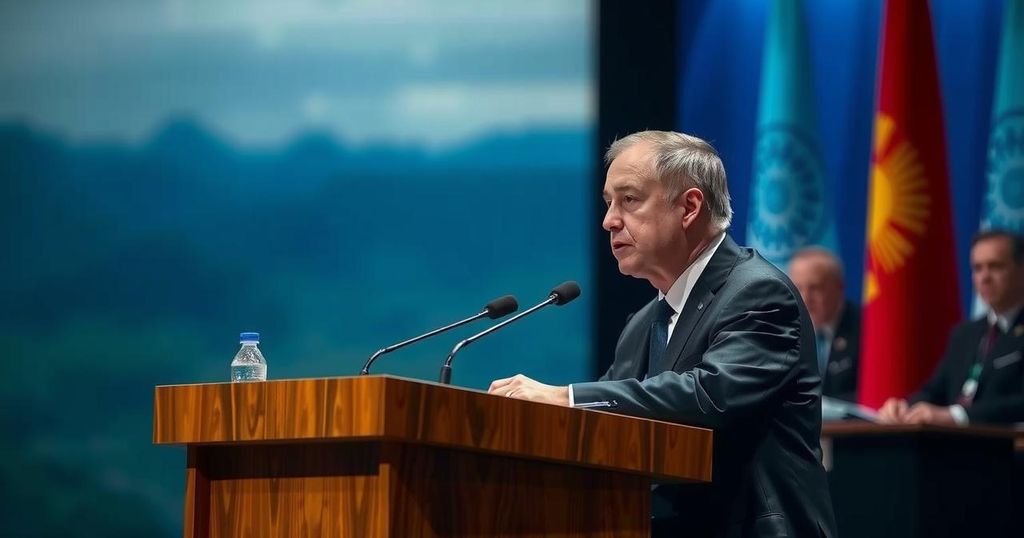COP29: Leaders Demand Action as Major Polluters Face Criticism

At COP29 in Baku, several leaders, including Albanian PM Edi Rama, criticized major polluters’ inaction on climate commitments. The summit highlights the urgent need for a transformative financial framework, particularly for vulnerable nations, with calls for grants instead of loans. Meanwhile, the UN Secretary-General emphasized the plight of small island nations threatened by climate change, calling for collective action to avert further injustices.
During the ongoing COP29 summit in Baku, Albanian Prime Minister Edi Rama questioned the effectiveness of the conference if the largest polluters remain uncommitted to substantive climate action. After witnessing leaders in a comfortable setting with little regard for their pledges, he emphasized the disconnect between declarations and actual consequences, asking, “What does it mean for the future of the world if the biggest polluters continue as usual?” Other leaders echoed this sentiment, highlighting the urgency of climate justice and financing. Gaston Browne, Prime Minister of Antigua and Barbuda, called for a transformative trillion-dollar finance deal, stressing that wealthy nations must fulfill their financial commitments to vulnerable states. He noted, “To those who bear the greatest responsibility, I say this: the time for moral responsibility is now – justice demands promises are enforced.” Global leaders, such as Pakistan’s Shehbaz Sharif and Bangladesh’s Muhammad Yunus, also urged accountability and action, particularly focusing on the need for grants rather than loans to facilitate meaningful progress in climate initiatives. Meanwhile, the UN Secretary-General Antonio Guterres underscored the plight of small island states, stating that their futures are threatened by climate change, which demands immediate transformative actions and commitments from rich nations.
The COP29 summit serves as a vital platform for world leaders to address climate change, yet its effectiveness has been scrutinized due to the lack of consensus among major polluters. Recent reports indicate that global carbon emissions continue to rise, contrary to the goals set at previous summits. Leaders are advocating for significant changes in financing mechanisms to support developing nations while emphasizing the necessity of tangible actions rather than mere rhetorical commitments to combat the climate crisis effectively.
In summary, the dialogues at COP29 reflect a growing frustration among world leaders regarding the insufficient action from major polluters amid rising emissions. Calls for financial commitments and climate justice are central to the discussions, as nations advocate for immediate and effective measures to address the ongoing climate crisis. A shifting political will, coupled with bold financial actions, is imperative for fostering genuine progress in the global fight against climate change.
Original Source: www.theguardian.com







